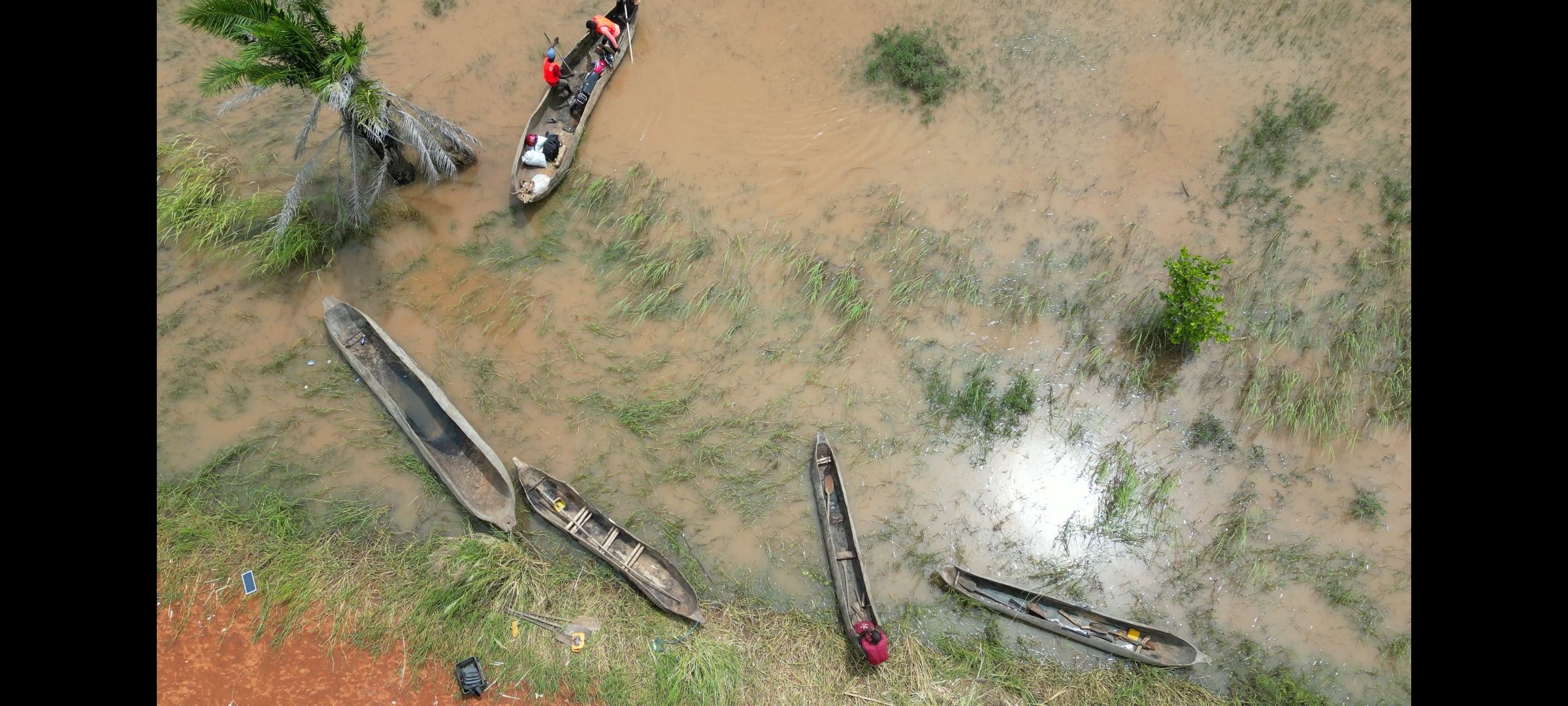Communities Struggle as Floods Cut Off Healthcare Access in Mozambique
By António Massipa, Regional Communications and Advocacy Coordinator
Bezito lives in a community called Ebona, in the Maganja da Costa district of central Mozambique. He suspects he has malaria, as he is experiencing all the classic symptoms, including fever, chills, and aching limbs. Knowing he needs urgent treatment, Bezito decides to make his way to the health centre at the Muoloa administrative post.
However, Bezito's journey becomes an ordeal when he finds the road blocked by raging floodwaters. Relentless rain has caused Licungo, the main river in Zambezia province, to burst its banks, inundating homes and farmlands, and cutting many sections of the very road Bezito needs to travel.
The health centre, once a beacon of hope, is now marooned. Access is only possible by canoe, a luxury Bezito cannot afford. In despair, he waits on the riverbank, watching canoes pass, each one carrying someone more fortunate than himself.
“I have malaria,” Bezito says, his voice echoing across the swirling waters. “I wanted to try and cross to Muoloa, where there’s a hospital, but I can’t. I've been here since morning, with no way to get across. The road’s flooded, the water’s everywhere. I’ve no money for a canoe. I’m so ill, I don't know what to do. The water’s covered everything, there’s no way out,” he adds.
Bezito's plight reflects the wider crisis gripping the region. The floods, a result of torrential rains, have affected 1,500 families, roughly 5,000 people. The population, already vulnerable, now faces even greater challenges, including healthcare access, isolation and loss of livelihoods.
The health centre, a vital resource, has become inaccessible for many. Diseases like malaria, which require prompt treatment, risk becoming fatal. Moreover, entire communities are cut off, isolated from essential services such as food, clean water, and medical care. Homes and farmlands have been destroyed, leaving families without shelter and without means of subsistence.

Bezito's story is a stark reminder of how natural disasters can exacerbate existing inequalities, leaving the most vulnerable in increasingly precarious situations.